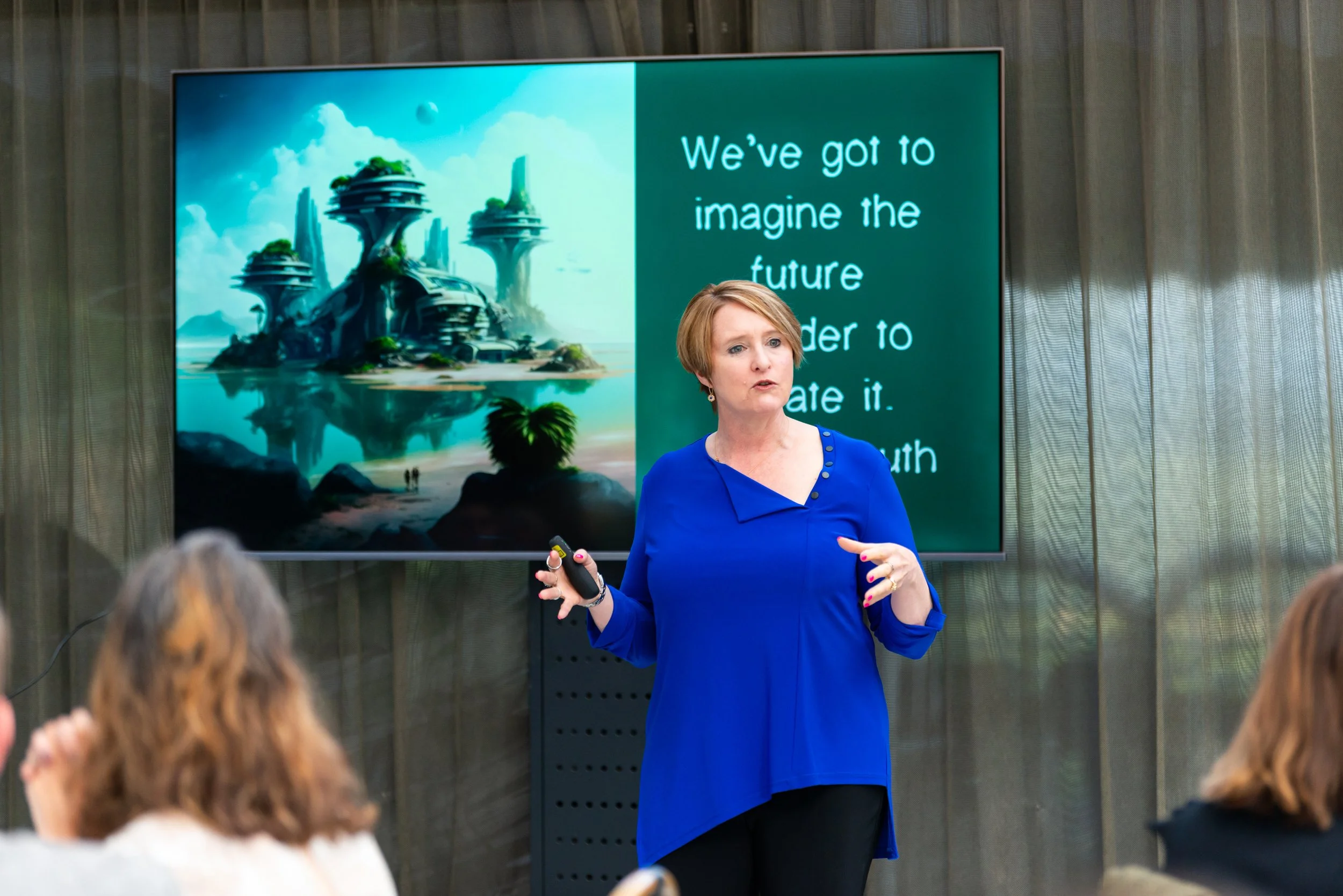It’s easy to feel helpless when we see behemoths spouting hate during the in-your-face political leadership discourse. Pick your country and political system, it matters not. It seems we have a plague of ‘us vs. them’ messages haranguing the hapless and gullible. It is terrifying.
Get the bigger picture with an expanded leadership perspective
It’s the same thing that happens in workplaces, just on a different scale. When it comes to the things that frustrate us or get under skin, we judge and reject what we don’t like. And feel helpless.
But it does not need to be so! We can herald and steer change - no matter our position of authority.
WHEN WE FEEL JUDGMENT, IT IS AN OPPORTUNITY FOR INFLUENCE.
How so? Well the first thing is, don’t hit back, speak up. It’s easy to sling insults and cut down others. This does nothing but inflame the divide. When you elevate the conversation, you draw others up with you.
Next, consider the three INFLUENCE INFLECTION POINTS FOR CHANGE
1. Symptom
2. System
3. Story
This is a shorthand version of Richard Hames’s model in the 5 Literacies of Global Leadership. It's a complex theory that suggests that we need to look at what creates problems and look for influence points more deeply than just the surface issues.
Like healing the human body - we have three different ways to intervene. If we have a cold, we often treat the symptoms. We take some drugs to ease a headache, and some decongestion to stem the nasal drip.
If we want to make an improvement to how our body handles the problem, we might look at the immune system and do things to boost it, like taking garlic, fish oil, ginger and other various remedies to help improve its function.
If we don’t look at the bigger picture, the bigger story about why we have a cold, we are setting ourselves to repeat the cold more frequently. We might need to change the story. This might be one of overwork, not enough rest, putting ourselves last, burning the candle at both ends or self neglect. We might need to start here: change how we manage our story of self care.
For bigger picture change, it works the same way.
A classic case study is the anti-smoking lobby and how it changed our view of smoking.
Fifty years ago, smoking was cool. We did it everywhere. Workplaces, homes and in public. Pretty soon the SYMPTOMS of this behaviour started becoming obvious: people were dying from smoking-related diseases.
Trying to stop people from smoking to address the symptom seemed the obvious approach. This got some, but not much traction. “Smoking is bad for you - please stop” was nothing more than a bandaid to a deeper problem.
The smoking lobby then tackled the SYSTEMS that support smoking: taxing cigarettes and banning marketing of cigarettes in as many places as possible.
The biggest impact however was how the anti-smoking lobby changed the STORY of smoking. It went from “Smoking is cool” to “Smoking is not cool.” Through relentless story-telling campaigns - in magazines and TV, it reinforced the image of smoking killing people and families - it strummed the heart strings as we saw ads where a mother was told she had lung cancer after years of smoking and now had to tell her young kids she was dying. Cultural norm stories can be changed. It just takes time, repetition and saturation of the message.
Closer to home, in organisations both big and small, we can look at the influence inflection points to move us from powerless to powerful.
Leadership principles for changing the story
1. ASK: What SYMPTOM do I see here? In other words, what is irritating the crap out of me?
2. ASK: What are the SYSTEMS that are inadvertently causing this problem? Is it a communication platform that needs fixing? Is it a policy that causes friction and adds red tape? Is it a priority that needs to be elevated?
3. ASK: What is the STORY that needs to change to make all of this easier? Is it a story I am telling about myself? (Like, I’m not just a cog in a wheel or no one listens to me) Is it a story that the organisation holds more broadly that needs to change?
Like, “Universities are about research.” (Actually, they are also about educating students).
Or, “Accountants lodge tax returns”. (Any accounting firm that just does tax returns is doomed. Much of that work gets done by people themselves online).
Or, “People need farmers.” (What people really need is food. And we might be getting that in laboratories and from crickets soon.)
What symptoms, systems and stories are you seeing? Where can you influence these?
***
Related Articles:
Do you struggle with people stuff?
How to influence without alienating others
***
About the author, Canberra leadership expert Zoë Routh:
Zoë Routh is one of Australia’s leading experts on people stuff - the stuff that gets in our way of producing results, and the stuff that lights us up. She works with the growers, makers, builders to make people stuff fun and practical.
Zoë is the author of four books: Composure - How centered leaders make the biggest impact, Moments - Leadership when it matters most, Loyalty - Stop unwanted staff turnover, boost engagement, and build lifelong advocates, and People Stuff - Beyond Personalities: An advanced handbook for leadership. People Stuff was awarded Book of the Year 2020 by the Smart WFM Australian Business Book Awards.
Zoë is also the producer of The Zoë Routh Leadership Podcast.


